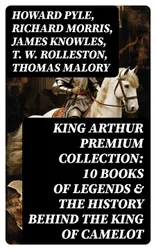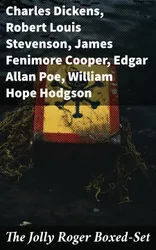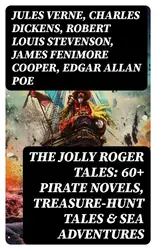Just above the northwestern shore of the old island of Hispaniola—the Santo Domingo of our day—and separated from it only by a narrow channel of some five or six miles in width, lies a queer little hunch of an island, known, because of a distant resemblance to that animal, as the Tortuga de Mar, or sea turtle. It is not more than twenty miles in length by perhaps seven or eight in breadth; it is only a little spot of land, and as you look at it upon the map a pin's head would almost cover it; yet from that spot, as from a center of inflammation, a burning fire of human wickedness and ruthlessness and lust overran the world, and spread terror and death throughout the Spanish West Indies, from St. Augustine to the island of Trinidad, and from Panama to the coasts of Peru.
About the middle of the seventeenth century certain French adventurers set out from the fortified island of St. Christopher in longboats and hoys, directing their course to the westward, there to discover new islands. Sighting Hispaniola "with abundance of joy," they landed, and went into the country, where they found great quantities of wild cattle, horses, and swine.
Now vessels on the return voyage to Europe from the West Indies needed revictualing, and food, especially flesh, was at a premium in the islands of the Spanish Main; wherefore a great profit was to be turned in preserving beef and pork, and selling the flesh to homeward-bound vessels.
The northwestern shore of Hispaniola, lying as it does at the eastern outlet of the old Bahama Channel, running between the island of Cuba and the great Bahama Banks, lay almost in the very main stream of travel. The pioneer Frenchmen were not slow to discover the double advantage to be reaped from the wild cattle that cost them nothing to procure, and a market for the flesh ready found for them. So down upon Hispaniola they came by boatloads and shiploads, gathering like a swarm of mosquitoes, and overrunning the whole western end of the island. There they established themselves, spending the time alternately in hunting the wild cattle and buccanning the meat, and squandering their hardly earned gains in wild debauchery, the opportunities for which were never lacking in the Spanish West Indies...












